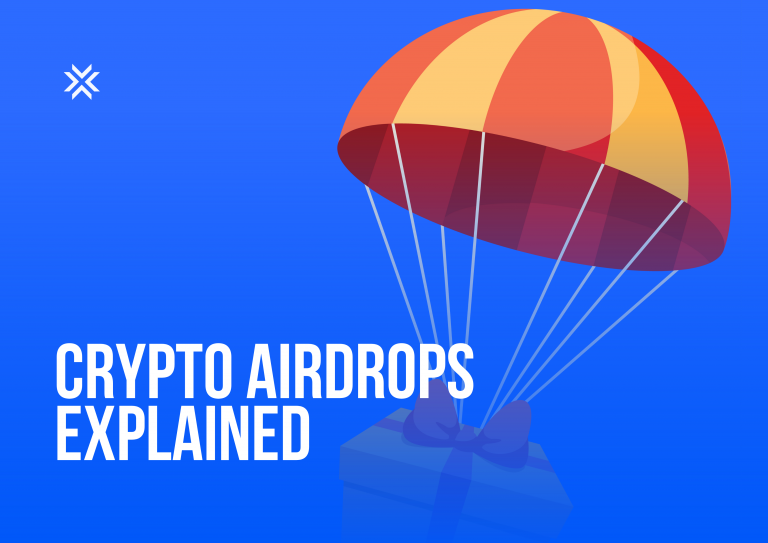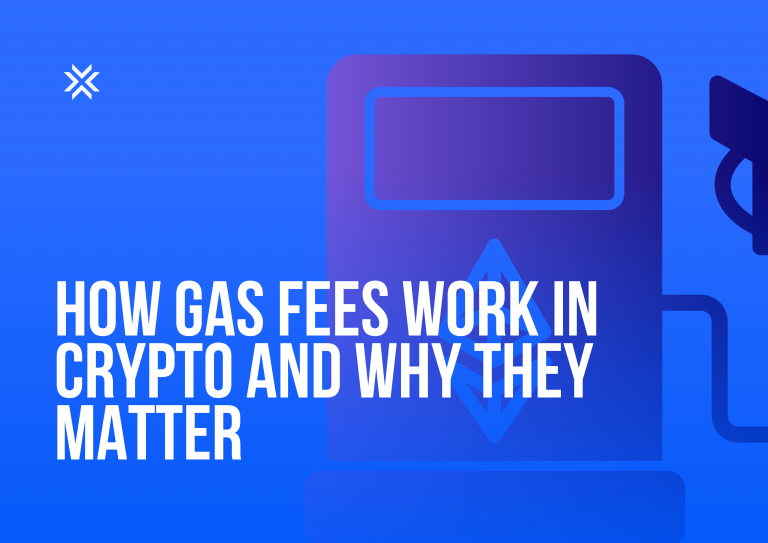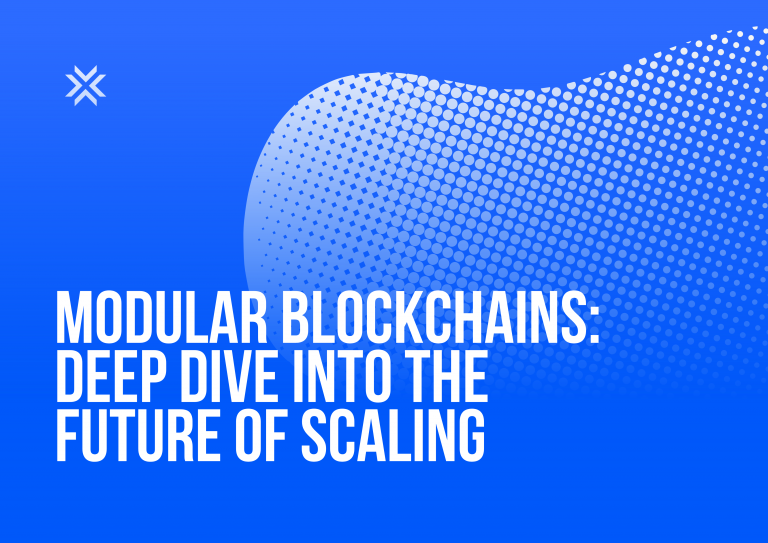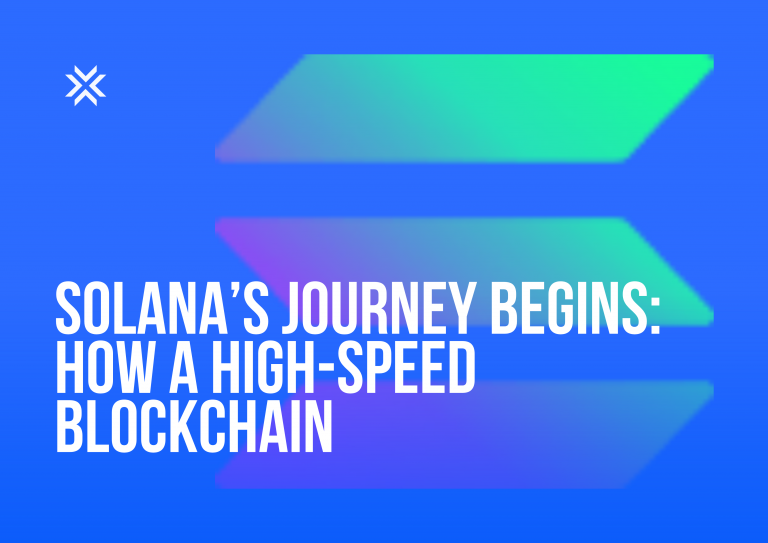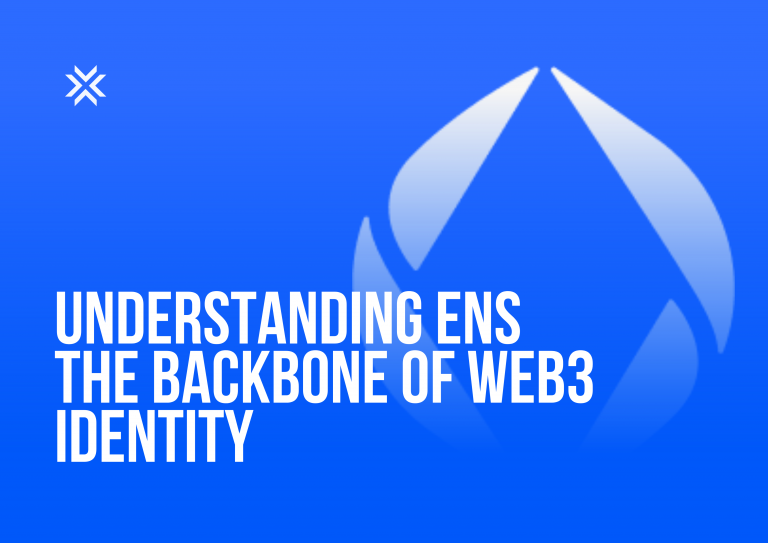We are halfway through the year 2020 but it feels like an entirely different era. The world has experienced the worst pandemic in over a century, protests and populism has been threatening democracy and governments have responded with the largest economic support packages and financial bailouts in modern times.
In these times of uncertainty, practicing self-quarantines, social distancing and work from home, digital media usage has peaked and accelerated digital transformation. Social media has democratized authority and influence and created a highly fragmented media landscape. Followers have evolved into active participants, supporters or even clients.
Businesses are leveraging a variety of social media channels, twitter, telegram chats and slack channels to communicate directly with their audience. Blockchain technology and new regulatory frameworks enable tokenization of assets and turn online communities or social media followers into true stakeholders. As a result Stakeholder Capitalism is not a theoretical concept any longer, but, due to fintech companies like LCX, turned into new business opportunities.
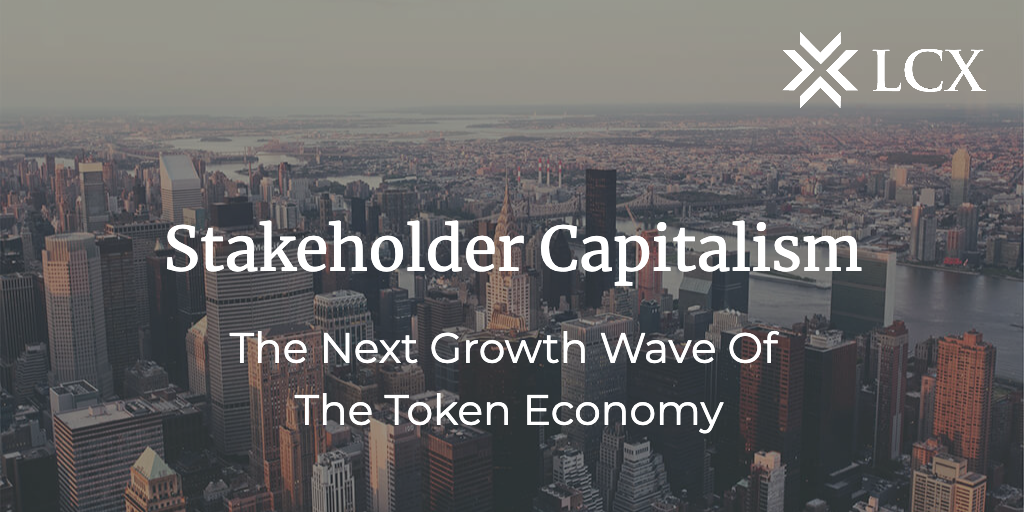
Stakeholder Capitalism
Stakeholder capitalism is an idea that an enterprise focuses on the requirements of all stakeholders including partners, customers, suppliers, employees, communities, and the planet as a whole. The notion enables an organization to develop an ecosystem encompassing capitalism and social responsibility towards societies, communities, and the world. Moreover, the approach focuses on creating a system that stands to benefit each of these stakeholders and not merely the shareholders.
In a strive to make stakeholder capitalism a reality, the World Economic Forum has established a vision – the Davos Manifesto 2020. This idea has also been a mantra at the Business Round Table (BRT) and was supported by nearly 200 CEOs. The world is entering the fourth industrial revolution and stakeholder capitalism is indeed the new way of companies and organizations.
For this idea to be manifested into reality mere talks and plans are not sufficient. Fundamental changes in the way we operate are the key to bringing stakeholder capitalism. Inclusion, innovation, and trust are key aspects to infuse this idea into any enterprise model.
- Inclusion: An inclusive environment that fulfills the needs and requirements of each stakeholder is they foundation to laying stakeholder capitalism.
- Innovation: Advanced innovations involve deploying different measures so as to make the system more resilient, fast, and secure. Moreover, innovations facilitate new and efficient ways of conducting old business.
- Trust: Stakeholder capitalism can only become a successful reality with the factor of trust between each stakeholder party.
Tokenization: The Future Of Financial Markets
Tokenization empowered with blockchain and smart contracts might just be the innovative tool that stakeholder capitalism needs to be converted into a practical reality. The tokenization industry market stood at $880 million in 2019 and is expected to grow at a CAGR of 18.9% during 2019-2027, as per this recent research report.
Tokenization enables ownership rights to assets to be represented in the digital format, therefore transactions with assets, physical or digital, are becoming easier. First, because digitally represented ownership does not require counterparties to meet, or even trust each other. Secondly, because digital rights, unlike physical possession of an asset, can be divided into fractional parts, which could make many expensive assets more accessible and more liquid. With Tokenization any asset can be divided into fractional parts, which are then represented with digital tokens. These tokens, also known as security tokens, can further be traded on global secondary markets. This process of converting an asset into digital tokens has existed for a long time. However, blockchain technology gave a new meaning to this concept by converting it into a reality.
One of the main benefits of tokenizing an asset is instant liquidity for potentially illiquid assets. It does so by enabling a secondary platform where digital tokens, which represent a physical asset, can be sold to any global investor. It further increases the depth and scope of any market and gives control to the hands of stakeholders, who possess the rights to the token.
Through fractional ownership, it also makes an asset more accessible and inclusive. The token economy brings a worldwide base of investors on a common shared platform. Moreover, through digital tokens, it becomes much easier, faster, and cheaper to exchange assets on a peer to peer network. It also helps in reducing settlement times from days or weeks to minutes by recording the transfer of ownership of assets on a decentralized blockchain ledger.
How Stakeholder Capitalism Can Leverage The Token Economy?
Stakeholder capitalism drives value in the companies of the fourth industrial revolution. Moreover, in this era, only those companies will be successful whose interests are aligned with all its stakeholders.
Tokenization is the key innovation that enables an ecosystem wherein each stakeholder can participate in the economy. The token economy enables a system that is governed by a decentralized network of stakeholders. The value in this economy is created by tokenized assets that essentially align the economic, social, environmental incentives of an organization. The incentives or value may be in the form of stocks, shares, points, carbon credits, loyalty points, or any other form of an index.
Tokenization facilitates an equal opportunity and rewards for each stakeholder. Additionally, each stakeholder has greater access to governance, capital, profits, and actions. Also, the token economy enables a stakeholder capitalism ecosystem such that each user has a say in the ownership of their data and identities as well.
The token economy based on blockchain technology also removes unnecessary intermediaries from the process. It enables transparent governance wherein corporations are more liable for their actions and responsibilities. Tokenization acts as an instrument that gives each stakeholder- responsibility, and rewards as well.
Creating Value Through Token Economy
Moreover, the token economy facilitates new systems and processes for distributing incentives. For instance, imagine an organization involved in an organic food business. The stakeholders in this ecosystem can be customers, farmers, retailers, distributors, employees, and the organization as a whole. Transparency of the blockchain allows all the stakeholders to review the authenticity of the organic food business. Today’s customers, who are more aware than ever to comprehend their food ingredients, can reward farmers with tokens. Blockchain technology also ensures if the company was not involved in any unethical practices- socially or environmentally. Alternatively, through the token economy, the company can also raise funds from its stakeholders for its operations or expansion. The token economy creates an ecosystem wherein the interests of all the stakeholders are aligned along with an incentivizing mechanism.
Alternatively, tokenization also benefits organizations that are looking to raise funds or capital. Under our current infrastructure, it is extremely difficult for a company to go ‘public. Moreover, there are a number of intermediaries from brokers, exchanges, lawyers, transfer agents that are involved in this process. Tokenization gives a company direct access to a broader set of investors from all across the globe without any limitations to boundary or time. Further, as tokenization enables instant liquidity, it subsequently also allows an enterprise with a better cost of capital. Hence, it serves as an instrument to enterprises who want to go public or invite a broader set of investors along with making the process cheaper.
The Steps To Create A Value-Based Stakeholder Capitalism Model
There are two key steps to the token economy in creating a value-based stakeholder capitalism model. These are stakeholder mapping and market infrastructure.
Stakeholder mapping includes defining participants in the economy. This includes mapping stakeholders that will drive value, how do they receive value in return, which incentives to entice them into the economy along with ensuring their long term participation.
While market infrastructure includes creating a network wherein stakeholders can transact with each other. This involves building a global network empowered by blockchain technology wherein users can transact tokens in order to drive value in an enterprise or ecosystem. Further, the market infrastructure also needs to be regulatory compliant in a way that avoids systematic failures.
Regulated Token Economy
Tokenizing assets such as financial instruments, debt, real estate property, corporate shares, or commodities entails multiple benefits. This includes greater liquidity, better access, and a more inclusive environment for businesses and stakeholders. However, the token economy requires a market infrastructure, a supportive environment, to scale. These may be in the form of secondary platforms for stakeholders to interact through tokens or for investors to transact with tokens.
In order to drive value through the token economy in the fourth industrial revolution enterprises, it is necessary to define a regulatory structure that can effectively manage financial risks and systematic failures. Furthermore, failure to provide a compliance framework within securities law to enable token economy may eventually compromize the entire system. Regulatory compliance is the very foundation of the value that we are trying to bring through tokenization, because it provides assurance and safeguards for the users, investors and customers while at the same time establishing a solid level playing field for financial professionals .
Clarifications within laws and regulations will further help protect investors, facilitate capital formation, and also enable a structured formation and operation of secondary markets. In order to bring secondary liquidity to tokenized security markets, it becomes imperative to ensure that tokens are listed, traded and safeguarded being traded in a compliant manner. It may subsequently become necessary to impose transfer restrictions on tokens exchange as well as create appropriate trading monitoring and limitations, for example, to ensure market integrity or address the risks of manipulations or insider trading. Defining limitations on liquidity at a compliant level would further ensure a trustless ecosystem for the token economy.
A regulated security token exchange would enable a user to benefit because it provides some basic assurances that assets offered are legitimate, that the assets pricing and asset performance are fairly represented and that the transactions will be settled with appropriate safeguards? . Rules and regulations for the transfer of tokens, trading monitoring limitations, identity checks, etc need to be defined in a legal manner. The regulatory regime also seeks licensing, risk monitoring, and reporting for issuers of tokens on secondary exchanges further adding an extra layer of security for investors. This creates a protective environment at the market level for stakeholders to collectively transfer value between each other.
Lastly, tokenization should not be looked at as a way to evade compliance surrounding traditional securities. Rather it is an effective tool to scale processes and enable innovation for concepts like stakeholder capitalism. The use of technology also creates an environment for companies at initial stages and startups to scale. The token economy brings a uniform compliance layer to market level infrastructure. This helps remove the unnecessary intermediaries from the process and also helps startups to scale.
Conclusive Remarks
Stakeholder capitalism has now become more relevant than ever. A company’s success is not merely restricted to its profits alone. Rather, each enterprise in this capitalism is an ecosystem driven with goals for the betterment of each stakeholder – from its customer to its community.
However, the model also needs an appropriate infrastructure to scale and optimize. The token economy is one of the key innovations to provide a foundation for the concept to turn into an on-ground reality. Subsequently, the token economy needs supportive infrastructure in the form of defined regulatory compliance at a global scale to avoid financial risks and failures in the economy. It is true that technology is an indispensable instrument. But, for the technology to truly create wonders, all stakeholders must work on creating an ecosystem that is mutually inclusive.


